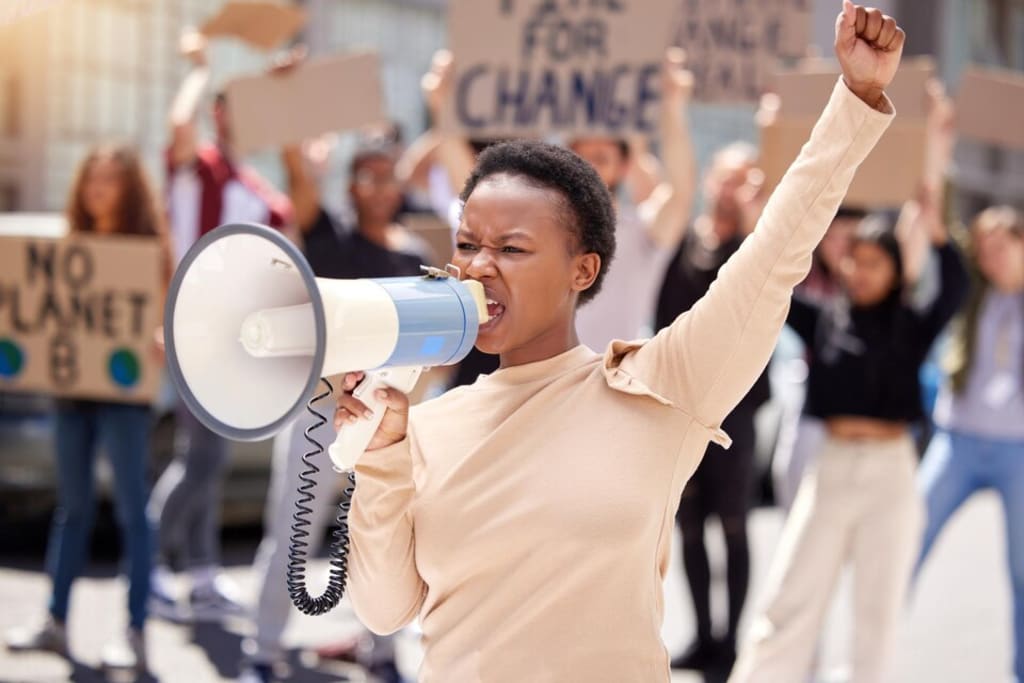Content warning
This story may contain sensitive material or discuss topics that some readers may find distressing. Reader discretion is advised. The views and opinions expressed in this story are those of the author and do not necessarily reflect the official policy or position of Vocal.
The Erosion of Democracy in African Countries
Struggles to Uphold Democratic Values

Democracy, as a political system, is built upon principles of equality, freedom, and representation, offering hope for fostering inclusive governance and economic development. While some African nations have made notable strides towards democracy, many have faced significant challenges in upholding democratic values. This article aims to explore the key reasons behind the failure of some African countries to honor democracy, analyzing factors such as corruption, weak institutions, political violence, and the legacy of colonialism.
Corruption and Mismanagement:
One of the primary obstacles to democratic governance in Africa is the endemic issue of corruption. Rampant corruption erodes public trust in institutions, undermines the rule of law, and perpetuates a culture of impunity among political elites. This mismanagement of resources diverts much-needed funds from vital public services, such as education, healthcare, and infrastructure, perpetuating poverty and inequality. The lack of transparency and accountability hinders democratic progress and fuels disillusionment among citizens.
Weak Institutions and Governance:
Many African countries suffer from weak institutions, characterized by a lack of checks and balances, an independent judiciary, and a free press. This concentration of power in the hands of the executive allows for authoritarian tendencies to flourish, further eroding democratic values. Moreover, the absence of effective institutions impedes the implementation and enforcement of democratic policies, leading to a vicious cycle of stagnation and frustration among citizens.
Political Violence and Instability:
Political violence and instability have been significant roadblocks to democracy in various African nations. The prevalence of armed conflicts, civil wars, and coups d'état not only disrupts the democratic process but also exacerbates poverty and humanitarian crises. The cycle of violence creates an environment of fear and mistrust, hindering the citizens' ability to engage actively in the democratic process and fostering an atmosphere of repression.
Ethnic and Tribal Tensions:
Ethnic and tribal tensions in some African countries have played a significant role in undermining democratic efforts. Politicians exploit these divisions to mobilize support along ethnic lines, perpetuating divisive politics that undermine national unity and the common interest. This fragmentation of society often results in electoral violence and impedes the establishment of a stable democratic system that genuinely represents the interests of all citizens.
Legacy of Colonialism:
The legacy of colonialism has had long-lasting effects on Africa's political landscape. The arbitrary borders drawn during the colonial era often resulted in the grouping of diverse ethnic groups and cultures, exacerbating internal tensions and conflicts. Moreover, colonial powers established extractive institutions that prioritized their interests over those of the local populations, fostering a culture of corruption and poor governance that continues to plague many African countries.
Economic Challenges:
Economic challenges, including widespread poverty and inequality, pose significant hurdles to democratic consolidation in Africa. The vast disparity between the rich and the poor leads to a sense of alienation and disillusionment among marginalized communities, undermining faith in the democratic process. Additionally, economic hardships often push desperate citizens to support autocratic leaders who promise stability and security over democratic principles.
Conclusion:
The failure of some African countries to honor democracy is a complex and multifaceted issue, stemming from a combination of historical, institutional, and socio-economic factors. Addressing these challenges requires a comprehensive approach that includes strengthening institutions, promoting transparency and accountability, addressing ethnic and tribal tensions, and fostering sustainable economic development. Moreover, regional and international cooperation is vital in supporting democratic movements and ensuring that democratic principles are upheld across the continent.
While the road to democratic governance in Africa may be challenging, there is hope that through collective efforts and commitment to democratic values, African nations can overcome these obstacles and build a brighter future for their citizens. Upholding democracy is not only a matter of governance; it is a fundamental human right that paves the way for social progress, economic prosperity, and inclusive societies.
About the Creator
Michael Rama
Are you hungry for fresh perspectives, captivating stories, and thought-provoking insights? Delve into a treasure trove of carefully crafted articles that span a wide spectrum of topics, from the latest trends to timeless wisdom.





Comments
There are no comments for this story
Be the first to respond and start the conversation.